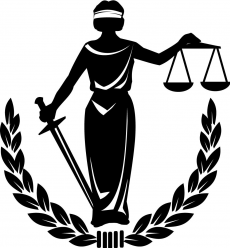
Email: emanuelealbertocirello.98@gmail.com
Total Article : 76
About Me:I am a Year 13 student which aspires to be an architect. I am interested in anything I don't yet know, and I mostly write about art, politics , Italian culture and inspirational people, although I will try to write for as many categories possible, just to test myself and get to know more things.

It may be argued that Natural law theory is a strong one as it provides a universal guide for judging whether an action is right or wrong. Another reason why this ethical theory may be deemed strong is that it affirms what most people accept which is that some actions are natural to human beings. Furthermore, it is a rational approach, meaning that it is not dependent on feelings so right and wrong remain fixed. Natural law also allows for some flexibility, especially thanks to the secondary precepts. Aquinas stated that ‘the more you descend into the details, the more it appears how the general rule admits of exceptions, so that you have to hedge it with cautions and qualifications’. A final strength of natural law as an ethical theory is that it is not dependent on the consequences of actions, they are right or wrong irrespective of outcome. This allows for certain actions to be given intrinsic morality e.g. to kill is always wrong.
However, it may also be argued that the argument is not coherent due to its descriptive and normative language. It is also not necessarily universal as different people in different cultures and countries think in different ways but this theory assumes that human nature and reasoning are identical. In addition, the randomness of the world depicted by modern science challenges the notions of people moving towards a particular goal. In its earlier Greek form, Natural Law saw reason (in the form of the logos, or Word), as an inherent feature of the universe. In its Christian form, it saw the world as the product of a purposeful creator God. If, faced with the apparent meaninglessness of events on a cosmic scale, or the purposelessness of innocent suffering, one comes to the conclusion that the universe does not conform to the expectations of human reason, or that it is unlikely to be the product of an omnipotent or loving creator, then the Natural Law argument loses its foundation, in other words: If we interpret the world as a place where everything has a final cause or purpose, then we can decide what is right or wrong accordingly. But if there is no final cause, then there is no means of judging any one thing to be more appropriate than another. Another weakness of this ethical theory is that it may be difficult to determine whether you are acting out of reason or not as it is sometimes difficult to identify when you are being persuaded by your appetites.
In terms of moving from primary to secondary precepts, there is a certain sense in which Aquinas’ thinking is based on assumptions that can be called into question. Take the primary precept of reproduction for example. From this follows the secondary precept that the sexual organs serve the purpose of reproduction. However this must therefore take place within monogamous relationships which does not allow for polygamy. The need to make assumptions which may be challenged is implicit in Aquinas’ whole approach. Some might think this is a strength, since it gives Natural Law some flexibility. But at the same time, as an absolutist theory, it arguably weakens its effectiveness.
Image credits: http://www.zerohedge.com/sites/default/files/images/user5/imageroot/2012/06/justice1.jpg

0 Comment:
Be the first one to comment on this article.